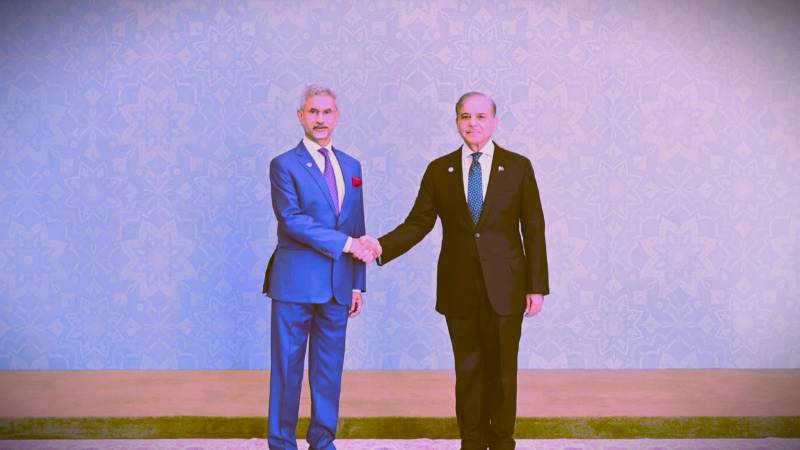
The Shanghai Cooperation Organisation (SCO) has emerged as a potential catalyst for renewed dialogue between India and Pakistan, especially as Pakistan grapples with multifaceted crises. The nation is currently experiencing economic stagnation, political turmoil, and increasing terror attacks targeting Chinese nationals involved in Belt and Road Initiative projects, as well as Pakistani security forces. In this precarious environment, concerns loomed over the Pakistani government’s capacity to successfully host the SCO summit in Islamabad. However, the event concluded without incident, showcasing commendable organisational efforts by the Pakistani authorities.
During the summit, which was chaired by Prime Minister Shehbaz Sharif, member states signed eight pivotal agreements focusing on regional counterterrorism, trade cooperation, and economic development. The leaders reiterated their commitment to fostering regional peace, political stability, and socio-economic collaboration. They also emphasised the necessity for enhanced cooperation in science, technology, the digital economy, and information security, aligning their efforts with United Nations resolutions aimed at promoting global peace and development.
Given the historically strained relations between India and Pakistan, there were initial expectations that India would refrain from sending high-ranking officials to the conference.
Contrary to this assumption, Indian Foreign Minister S. Jaishankar attended the summit and engaged in discussions with Prime Minister Sharif and other officials on the sidelines. His opening remarks exemplified diplomatic finesse, focusing on shared concerns such as terrorism, extremism, and separatism, while avoiding any direct references to the contentious bilateral history, especially the issue of cross-border terrorism. He also spoke for enhanced connectivity and trade between the two nations, subtly highlighting the benefits of cooperation. His tweet on Pakistan’s hospitality and courtesy was met with appreciation from both the Pakistani government and the media.
The current geopolitical climate presents an opportune moment for India and Pakistan to initiate bilateral talks aimed at fostering goodwill and establishing lasting peace in the region. Historically, efforts to resume dialogue have been undermined by military influence in Pakistan, often leading to escalations at the border. Notable instances include the 1999 Kargil conflict, which followed the signing of the Lahore Declaration between then-Prime Ministers Atal Bihari Vajpayee and Nawaz Sharif. The Indian Prime Minister Narendra Modi’s visit to Lahore in 2015 was succeeded by heightened tensions along the Line of Control. Similarly, President Musharraf’s visit to India in July 2001 to attend the Agra Summit where he proposed with a four-point solution to resolve the Kashmir dispute. His proposal was almost on the verge of being accepted by India but India refused to sign the agreement as Musharraf failed to commit to end the cross-border terrorism.
To foster goodwill, India could consider sending its cricket team to Pakistan for the upcoming Champions Trophy, a gesture that could pave the way for enhanced cultural exchanges. Moreover, India should reevaluate its precondition that bilateral talks can only resume if Pakistan renounces cross-border terrorism
The book, Spy Chronicles: RAW, ISI and the Illusion of Peace, co-authored by former intelligence chiefs AS Dulat of India and Asad Durrani of Pakistan, sheds light on the complexities of the India-Pakistan relationship and the urgent need for conflict resolution.
The military establishment in Pakistan has historically resisted peace initiatives, fearing a reduction in its influence. Past attempts by civilian governments to engage in dialogue have often coincided with acts of violence, creating a cycle of distrust. For instance, Modi’s 2015 visit was followed by the attack on the Indian Air Force base in Pathankot.
To foster goodwill, India could consider sending its cricket team to Pakistan for the upcoming Champions Trophy, a gesture that could pave the way for enhanced cultural exchanges. Moreover, India should reevaluate its precondition that bilateral talks can only resume if Pakistan renounces cross-border terrorism. Given that this stance has not catalysed any meaningful change in Pakistan's behavior, engagement might yield better results, particularly with the current leadership in Islamabad expressing a genuine desire for peace.
As global conflicts escalate, it is imperative that both nuclear-armed neighbors resolve their disputes through dialogue and cooperation. Improved relations could lead to significant benefits for both populations, including revitalised trade, cultural exchanges, and enhanced sporting interactions. With Shehbaz Sharif at the helm, it is an opportune moment to resume the talks as both the Sharif brothers are strong supporters of resuming ties with India.
Ultimately, India’s aspirations of becoming a global power are closely tied to its relationships with neighboring countries. A renewed commitment to dialogue and cooperation between India and Pakistan is not just desirable but essential for achieving regional stability and prosperity. The time has come for the leadership of both nations to demonstrate statesmanship, moving beyond historical grievances toward a constructive future. It would be an ideal situation when China, India, and Pakistan forge a close cooperation by ironing out the differences as such an effort would not only bring lasting peace in the region but would also bring economic prosperity in the region.

